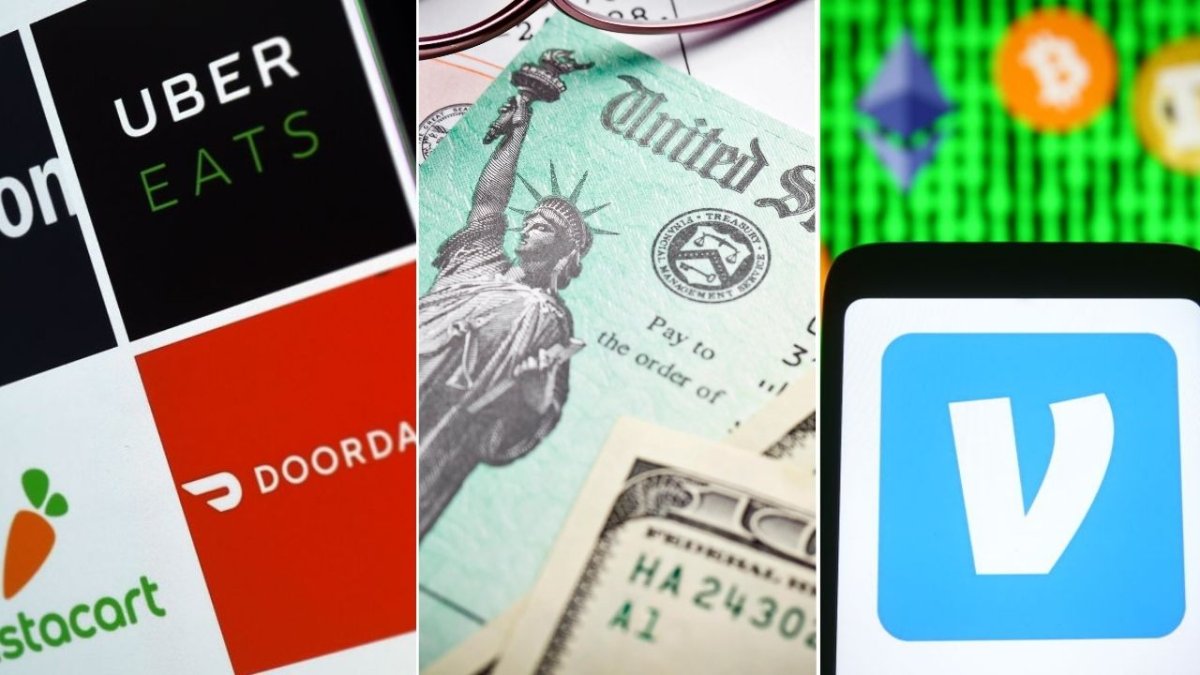The sharing economy and money transactions with online apps have come in handy for millions of people who want to earn a little extra cash, or just use them for personal reasons.
At tax time, these transactions cannot be forgotten.
“Any income one receives, whether from the shared economy, virtual currency transactions, offshore income, having assets overseas, or from buildings, inventory and property, everything must be declared”, explained Octavio Saenz, spokesperson for the tax authorities.
Jobs in the sharing economy, “also called the local or drop-in economy, are an activity in which people earn income by providing labor, services or goods on demand. Often this is through a digital platform such as an app or website,” according to the official IRS website.
Many people engage in activities with apps like Uber, Lyft, or DoorDash to earn extra income. Some examples of the sharing economy are driving cars, shopping, selling online, renting or selling equipment, among others.
“What this causes is that these jobs generate tax obligations that must be declared even if they are part-time,” Saenz explained.
In other words, the IRS says that if you used these platforms and received money, you must report it on your taxes, even if the income is:
- Part-time, temporary or secondary work
- Not reported on an information reporting form, such as a Form 1099-K, 1099-MISC, W-2, or other income statement
- Paid in any form, including cash, goods, property or virtual currency.
What is Form 1099K?
The IRS spokesperson explains that Form 1099k “is used to report transactions for the sale of products or services through person-to-person money transfer applications.
With the advent of the coronavirus pandemic, the sharing economy and app-based money transfer apps have become popular.
During the US bailout, economic stimulus checks were approved, remember? But other laws were also added that came into force.
“What is the change that has taken place? Octavio asks. “Well, the 2021 American Rescue Plan Act required these platforms to report through this form, when transactions were over $600.”
Before this law was passed, “the threshold, the requirement to generate one of these forms was when you had or generated more than $20,000 and there were more than 200 transactions,” Saenz said.
Therefore, the transactions should not be so many currently and the money transfer is not so high. “This is the biggest change, in how the platform flags or sends these forms,” Saenz added.
Personal transactions with applications
However, thousands of people use some of these apps simply to send money to a friend for dinner, or to pay for part of an outing for fun.
In this case, the IRS spokesperson clarifies that “this does not apply to personal accounts. It only applies to those who have a business account with these platforms.
Additionally, “platforms are not required to report transactions with a form,” Saenz said, but the taxpayer is.
To give an example, Saenz said “let’s say if I had a small business, I was selling furniture, and I was using these platforms, I have an obligation, because I have a business account, and I have for professional use, I have the obligation to declare them in my tax return.
What if you received money with applications?
The IRS reminds that if you received business-type money with these applications, you have digital assets, “they must report the income as they would other income of the same type (eg, wages W-2 on Form 1040 or 1040-SR, line 1, or inventory or services on Schedule C)”.
One of the questions on Form 1040 relates to digital transactions. You must answer “yes” or “no” to indicate whether or not you have used these applications for commercial purposes.
For more information, you can visit the IRS Sharing Economy page.

